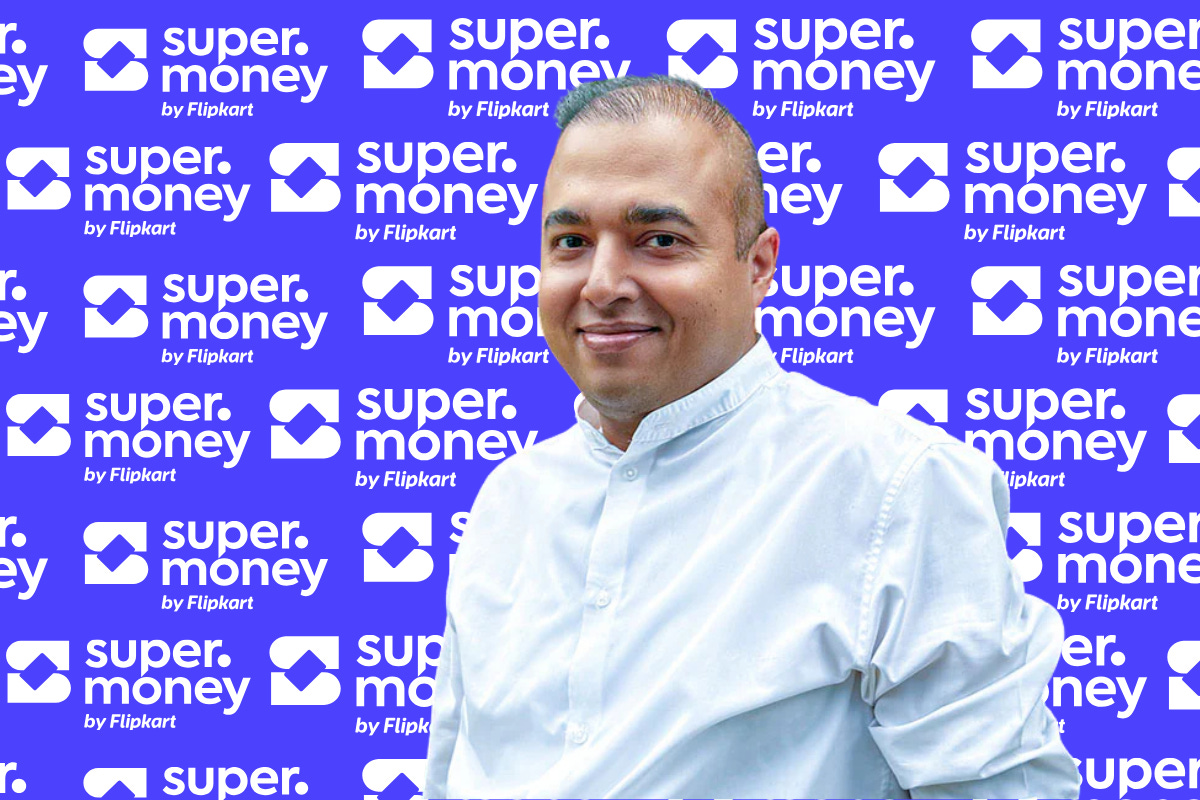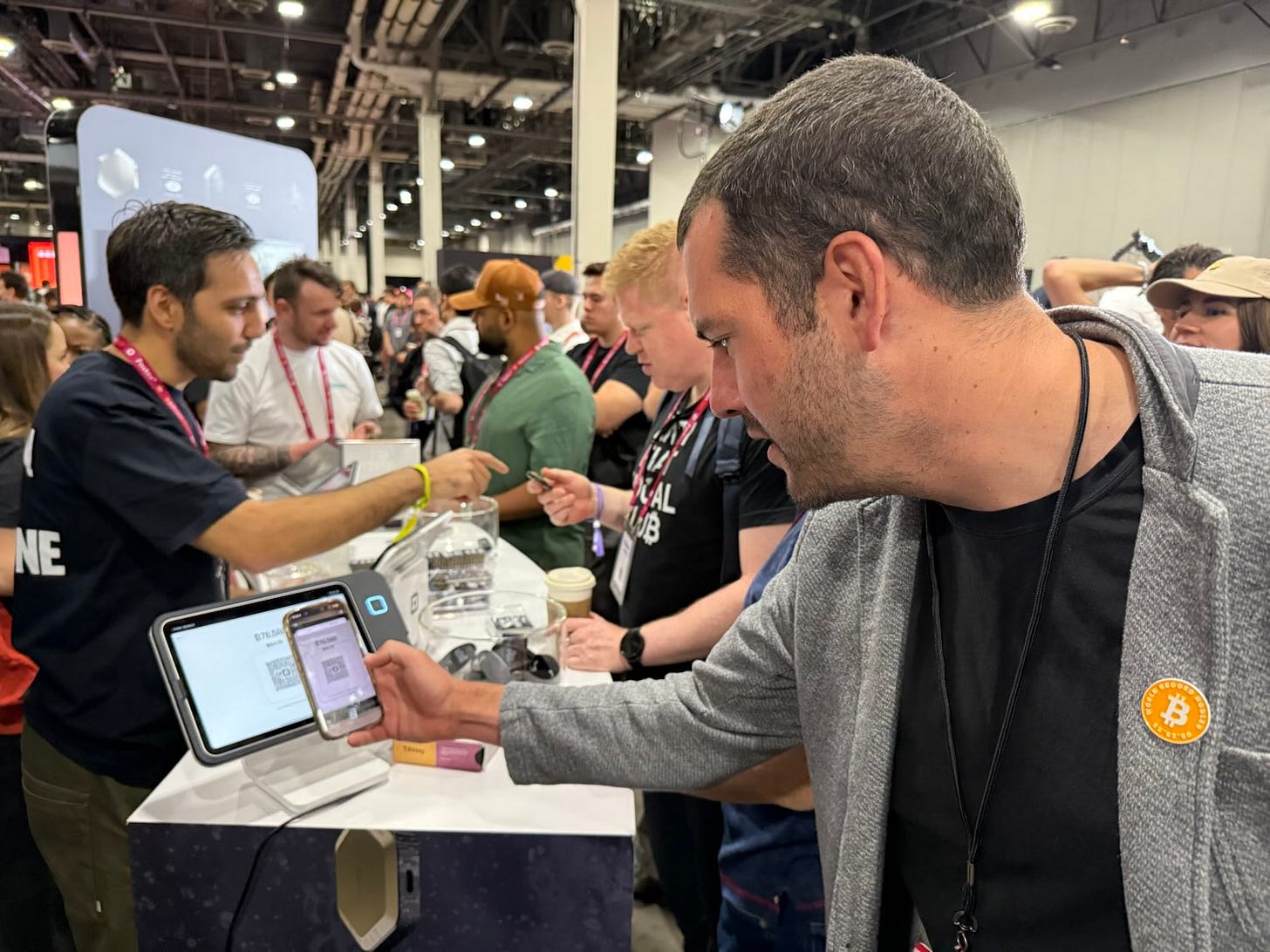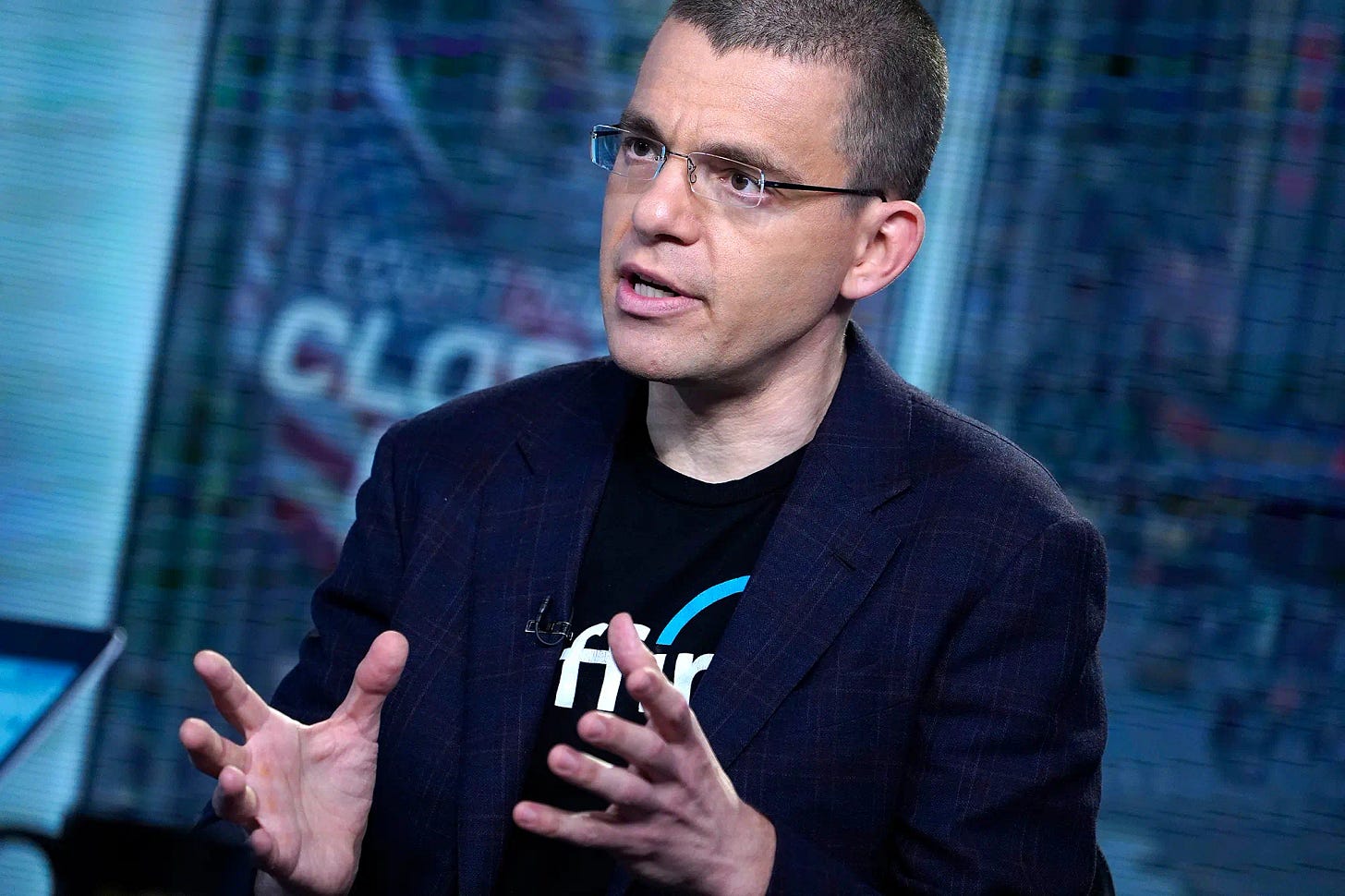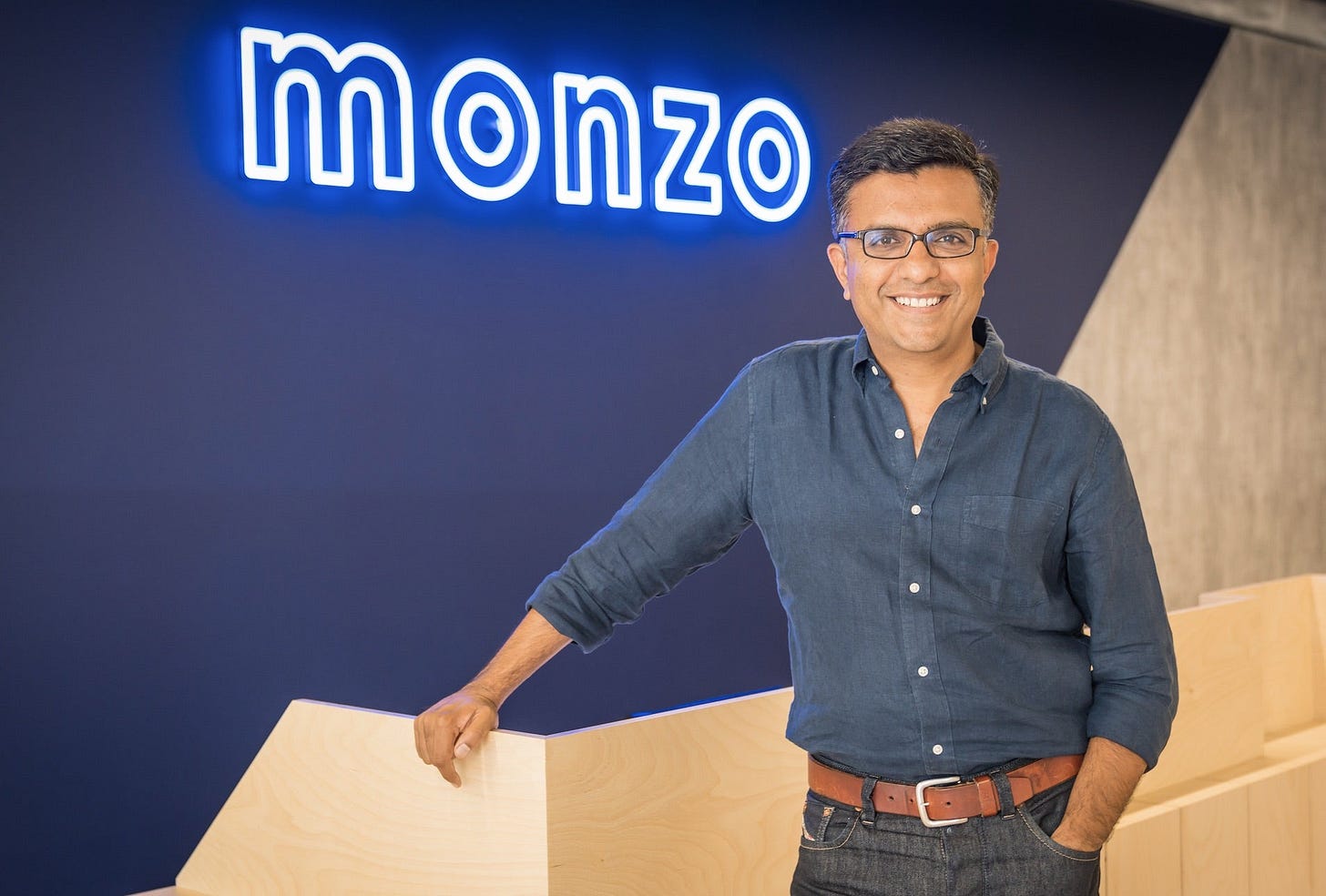Jay McGraw, Dr. Phil's Son & Former President of a Predatory Online Lender, Set to Make $140M Out of Chime IPO 🇺🇸
We're also covering Mercado Libre's war on Nubank 🇦🇷, Walmart's Indian fintech rocket ship 🇮🇳, Jack Dorsey's Bitcoin checkout nobody will use 🇺🇸 & Monzo expanding to US & Ireland 🇬🇧
This issue was quite fun, as it’s probably the first time in decades I had the chance to do some light investigative journalism (yep, I was a business journalist a long time ago) by exploring the ties between Chime and Dr’ Phil’s son, who turns out to be deeply involved with the payday loan industry.
On a lighter note, I also had some fun turning the old PayPal-Musk drama story into a slider I posted on Reddit.
Oh, and before you get started on the newsletter’s crunchy stories of the week, fill this form if you are currently raising for your fintech. I don’t have a dime to invest, but I will feature fintech start-ups that are currently fundraising in the newsletter… if I like what I see. Obviously, I won’t do any due diligence, so the fintechs I’ll feature here in the future are not deals I’m actually recommending doing, but fintechs that I think are worth a look.
🇺🇸 Jay McGraw, Dr. Phil's Son & Former President of a Predatory Online Lender, Set to Make $140M Out of Chime IPO
Chime’s upcoming IPO at a $11 billion valuation is creating massive windfall for an unlikely investor with a controversial lending background. Jay McGraw (left), son of Dr. Phil’s TV host Phil McGraw (right), owns a little over 1% of Chime, a stake worth approximately $140 million at the IPO price. This is a sizable stake considering that co-founder and CEO Chris Britt owns 5% of the company and his co-founder Ryan King, 4%. While we don’t know how Jay McGraw got hold of his stake, we do know that Chime's debit card was first publicly announced on the Dr. Phil show in 2014.
Jay McGraw, who served as executive producer on his father's television show and married Playboy model Erica Dahm, was once listed as president and secretary of CreditServe, a US online lender which helped arrange small, high-interest loans with rates as high as 700% through a tribal entity called Minto Money, located in a native village of 160 in Alaska. As of this writing, Jay’s name no longer appear on CreditServe’s Texas business registry listing and was replaced by his business partner’s Eric Welch.
A federal lawsuit filed in Illinois, that was conveniently (for Chime) settled in May, accused McGraw of providing "tens of millions of dollars" in capital for the loans : “Although the Tribe holds itself out as the actual lender of the internet payday loans, the Tribe is merely a front, and CreditServe—at the direction of McGraw and Welch—provides the infrastructure to market, fund, underwrite, and collect the loans”. The lending operation generated over 280 consumer complaints to the Federal Trade Commission and holds an "F" rating with the Better Business Bureau.
Jay McGraw was also listed as president Helping Hand Financial, a lender that was operating payday loan provider CashCash.com, although the corporation was dissolved in 2018 and Jay’s name was removed from the Texas business registry filing to leave only Eric Welch. However, McGraw is currently serving as president and CEO of Cherry Auto Finance, a subprime car lender operating cherrycars.com, while his business partner Eric Welch is serving as vice-president, according to the Texas business registry.
That a major shareholder in a fintech designed to serve low-income Americans have ties to predatory lending is concerning. While we don't know if Chime ever referred clients to CreditServe/Minto Money, Cherry Cars or CashCash.com, we do know from reading Chime’ S1 that referrals are part of the neobank’s business model : “The Company also generates revenue from third-party partnership agreements through products such as Experian Boost and its Offers Marketplace, where the Company receives payment from partners that offer products and services to members on the Chime app for connecting members with the partners.”
Source: Global Fintech Insider, ProPublica, The Independent, Forbes, Anchorage Daily News & Opencorporates
🇦🇷 Mercado Libre Vows to Dethrone Nubank With Claim It's Building Latin America's Largest Digital Bank
"We are building the largest digital bank in Latin America," declared Juan Martín de la Serna, vice-president of corporate affaires at Mercado Libre. The bold claim comes as the Uruguay-based "Amazon of Latin America" confirmed that its payment arm Mercado Pago will apply for a banking license in Argentina.
Mercado Libre is also pursuing banking licenses in Brazil and Mexico and obtained a payment license in Colombia, setting up a potential regional showdown with digital banking pioneer Nubank, which dominates Brazil and has expanded into Mexico and Colombia.
The strategic expansion comes as Argentina's financial inclusion rate of 72% still trails the global average of 76%, but more importantly, most Argentines have low rates of using banks for borrowing and investing, limiting themselves primarily to savings and credit cards. Alejandro Melhem, senior VP of Mercado Pago for Hispanic Latin America, noted that applying for a banking license "is a natural step to offer more products and continue improving the user experience."
To understand the magnitude of this regional battle, consider the scale of both players. Mercado Libre, Latin America's dominant e-commerce platform, commands a market capitalization of approximately $133 billion and operates across 18 countries spanning virtually all of Latin America from Mexico to Argentina. Its payment arm Mercado Pago, launched in 2003 as a simple checkout solution for its marketplace, has evolved into a comprehensive fintech offering digital wallets, QR payments, credit cards and savings accounts, serving 64 million monthly active users.
Meanwhile, Nubank started as a pure digital bank in 2013 and rapidly expanded beyond basic banking to offer investment products, insurance, and credit services. The Brazilian neobank now serves over 100 million customers primarily across Brazil, Mexico, and Colombia, with a market cap of 58 billion.
Source: Latin Finance & Global Fintech Insider
🇮🇳 Walmart Backed Super.money Rockets From Zero To 175M Monthly Transactions In Just 10 Months
Walmart-backed Flipkart's fintech subsidiary super.money has rocketed to become India's fifth-largest player on the UPI payments network in just 10 months. The fintech now processes 175 million monthly transactions while aggressively expanding into loans. So far, its loan marketplace has generated $700 million in disbursements.
Founded and led by CEO Prakash Sikaria, a former VP of growth at Flipkart, the fintech acquired Y Combinator-backed checkout financing platform BharatX back in February. The deal was done to integrate buy-now-pay-later and installment payment solutions directly into digital transactions. "We want to be one of the largest players in checkout financing within the next few quarters," Sikaria told YourStory.
Super.money was spun off by Flipkart as an independent subsidiary in August 2024, with an initial $20 million capital infusion. Flipkart, India's largest e-commerce platform with 32.4% market share versus Amazon's 24.3%, generated $5.2 billion in revenue in 2024.
Source: Global Fintech Insider, Financial Express & YourStory
🇺🇸 Jack Dorsey Launches Square Bitcoin Checkout, But Admits He's Not Expecting People To Use It
Jack Dorsey's Block has launched Square Bitcoin Checkout, allowing merchants to accept bitcoin payments through Square point-of-sale terminals, but the CEO is candidly pessimistic about adoption prospects. Nevertheless, will start rolling out this year, starting with the Bitcoin 2025 conference in Las Vegas, where Block’s business lead Owen Jennings made his first Bitcoin purchase using Square (pictured above). The new feature will roll out to all eligible merchants by 2026, with customers paying by scanning QR codes through the Lightning Network.
Despite championing bitcoin as the internet's native currency, Dorsey acknowledges this isn't the first attempt. Block previously enabled bitcoin payments for online sellers in 2014, but "zero buyers used it," according to Dorsey. He's equally realistic about the current launch: "I don't think this time around usage will be much. I hope I'm wrong," he told attendees. "We're building something for people that may want to spend their bitcoin, in a cycle where people may not actually want to spend their bitcoin because it's going up so much."
Bitcoin Product Lead at Cash App (a Block-owned app) Miles Suter, on the other hand, positioned the new feature as both a payment method and potential treasury strategy for small businesses seeking bitcoin exposure similar to corporate adopters like Strategy.
🇺🇸 Affirm CEO Max Levchin Hints At Launching Some Kind of AI Powered Shopping/Financial Assistant
Affirm CEO Max Levchin has teased plans to deploy generative AI across the buy-now-pay-later company's app search engine, aiming to help consumers make smarter financial decisions when browsing merchant offers and loan options. During the company's fiscal third quarter earnings call, Levchin outlined a vision where the Affirm app functions as an AI-powered "search engine" that can answer complex queries about merchants, deals, and optimal financial choices.
"If you look at how the world is changing in the context of generative AI, every search is going to be an AI conversation like that," Levchin told analysts. "You should absolutely expect us to have an answer for that as well." The CEO envisions users asking questions like "I have this thing or merchant in mind" or "what's the smartest financial decision?" with the AI providing personalized recommendations based on available Affirm products, including the company's popular 0% interest loans.
While Affirm has used AI and machine learning for underwriting since its founding, and already employs generative AI for back-office operations, this represents the company's first major consumer-facing AI initiative. Levchin emphasized that Affirm's current search functionality is "pretty good" but the team is "working on improvements relentlessly" as they prepare to integrate conversational AI features.
Source: American Banker
🇨🇦 Wealthsimple, Canada's Largest Fintech, Is Hiring High Schoolers Because They Are AI Natives
Wealthsimple, Canada's largest fintech valued at $5 billion, is recruiting recent high school graduates for year-long paid internships because they view this generation as "AI natives". In a Linkedin post, Chief People Officer Diana McLachlan emphasized that unlike older workers, "they're not adapting to AI. They've grown up with it. Their instincts are fast, fluid, and collaborative and we want to learn from them."
The program requires no degree or resume. Candidates can apply with three one-minute videos demonstrating curiosity, problem-solving skills, and ideas for improving the company's products or processes. The 12-month program rotates interns through three four-month terms covering business operations, product development, and marketing. Participants must work from Wealthsimple's Toronto headquarters and be 2025 graduates legally eligible to work in Canada. The move comes as Wealthsimple continues expanding its AI capabilities, including deploying an AI chatbot that handles 60-70% of customer inquiries without human intervention.
Sources: Global Fintech Insider
🇺🇸 Fintech CEO Itai Damti Says Stablecoins Are Regulatory Arbitrage That Won't Last
Itai Damti, CEO of New York-based embedded finance platform Unit, has criticized stablecoins on X as "mostly a regulatory arbitrage that works around the US banking system" and predicted the model won't survive increased regulatory scrutiny. In a series of X posts, Damti highlighted money laundering concerns, noting that stablecoin users "don't necessarily need to pass KYC to transact" and called the ecosystem "a shadow financial system that lives alongside the USD system." While acknowledging stablecoins offer technical improvements, he argued that "banking regulators care about much more than technical progress" as "they need to keep the monetary system stable and even to all participants" and "prevent money laundering."
His comments come as major US banks including JPMorgan, Bank of America, and Wells Fargo are reportedly discussing launching a joint stablecoin to compete with crypto firms, while companies like Stripe expand stablecoin integration across 101 countries and regulatory frameworks like the GENIUS Act advance in Congress. Unit provides embedded finance infrastructure allowing corporate clients to offer white-label banking services including money transfers, accounts, and digital wallets.
Source: Global Fintech Insider
🇰🇷 Super App Giant Kakao Pounces on Acquisition Rival Toss Couldn't Complete
Kakao Pay is swooping in to acquire SaekPay and SmilePay from retail giant Shinsegae E-Mart for approximately 500 billion won ($363 million), stepping into a deal that rival super app Toss was previously positioned to complete before negotiations collapsed last year. The acquisition would boost Kakao Pay's position in South Korea's competitive payment landscape, where three super apps control 90% of the electronic payments market: Kakao (offering messaging, payments, ride-hailing, and banking), Toss (combining money transfers, banking, stock trading, and insurance), and Naver (integrating e-commerce, payments, and financial services). Currently ranking third with 766.2 billion won ($556 million) in annual sales, Kakao Pay trails significantly behind Naver Pay's 1.647 trillion won ($1.2 billion) and Toss Pay's 819.6 billion won ($595 million)
Source: MAEIL BUSINESS NEWSPAPER
🇬🇧 Monzo Hits $1.35B Revenue Milestone & Plans to Launch in Ireland and the US
British neobank Monzo has reported annual revenues exceeding £1 billion ($1.35 billion) for the first time, marking a major milestone as it eyes international expansion. The London-based fintech reported pre-tax profit of £60.5 million ($82 million) for the 12 months to March, nearly four times its profits from the previous year, while adding 2.4 million new customers to reach more than 12 million total users. Despite speculation about an imminent IPO following a secondary that valued the british fintech at £4.5 billion ($6 billion), CEO TS Anil (pictured above) downplayed immediate public offering plans, instead focusing on scaling internationally with expansion into Europe starting with Ireland and plans to re-enter the US market. After withdrawing its US banking license application in 2021, Anil plans to return through a banking partnership to bypass licensing requirements, saying "We are excited about the US because it is a massive market and it is a market that we feel truly needs a Monzo.”
Source: Financial Times
🇺🇸 Autopilot Hits $750M In Assets, Half of Which Are Invested in Nancy Pelosi's Trades
Copy-trading app Autopilot has crossed $750 million in assets under management (AUM), with a staggering $400 million directly copying Nancy Pelosi's stock trades. The milestone makes the registered investment advisor one of America's fastest-growing Registered Investment Advisors (RIAs), serving 150,000 investors across 60+ portfolios that automatically replicate trades from politicians and famous investors.
"What's also cool is investors are now launching and monetizing their own portfolios (invite only), with the top investor already earning $300K in revenue payouts so far," said Chris Josephs (pictured above), co-founder of Autopilot, announcing the achievement on LinkedIn. As a RIA, Autopilot connects to users' existing brokerage accounts at platforms like Robinhood and TD Ameritrade to execute trades automatically when public disclosure filings are made.
That over half of Autopilot's assets ($400 million out of $750 million) follows a politician is insane. Like it or not, former House Speaker has become some sort of poster child for copy trading thanks to her her strong returns. Autopilot's RIA model differs from competitors like Dub, a licensed brokerage with 1 million downloads that handles trades directly, and that also happened to heavily features Nancy Pelosi in its ads, and Blossom Social (275,000 users), which also allows users to monetize their portfolios, but whose users have to manually copy trades since it lacks regulatory registration.
Source: Global Fintech Insider
🇺🇸 Fintech Investors Still Dominate Forbes Midas List Despite AI Boom
Fintech investments continue to dominate venture capital's most prestigious ranking. Despite AI bets having reshuffled the deck this year, fintech remains omnipresent in this year's Forbes Midas List, with 10 of the top 20 investors being there thanks to fintech bets.
Alfred Lin (1st) from Sequoia is definitely topping the ranking thanks to his investment in OpenAI, but he also invested in Kalshi and Citadel Securities. Peter Thiel from Founders Fund (3rd) invested in Stripe, SoFi, and Nubank. Micky Malka (5th) from Ribbit Capital built his reputation on Coinbase, Credit Karma, Wise and Mercado Libre. Vinod Khosla (6th) from Khosla Ventures backed Affirm, and Douglas Leone (7th) from Sequoia invested in Nubank. Hemant Taneja (8th) from General Catalyst backed Stripe, while Fred Wilson (9th) from Union Square Ventures and Chris Dixon (10th) from Andreessen Horowitz both invested in Coinbase. Saurabh Gupta (15th) from DST Global backed Chime, and Keith Rabois (17th) from Khosla Ventures invested in Ramp and Affirm.
Source: Forbes
Fintech Slider of the Week
Read the full story in 16 slides
Upcoming Fintech Events
🇳🇱 Money20/20 Europe will be held in Amsterdam on June 3-5, 2025 (3,395 USD), with speakers such as Steven van Rijswijk, CEO of ING & Yoni Assia, CEO of eToro.
🇬🇧 The Future of FinTech Conference 2025 will be held in London on June 12, 2025 (527 USD), with speakers such as Kirsty Rutter, Strategic Investment Director at Lloyds Banking Group & Chris Waring, Head of Digital Customer Journeys at NatWest.
🇮🇱 Money Tel Aviv will be held in Tel Aviv on June 18-19, 2025 ($83), with speakers such as Ido Shamash, head of payments at Wix & Ran Cohen, CEO at BridgerPay.
🇺🇸 Fintech South will be held in Atlanta on August 19-20,2025 ($600), with speakers such as Joshua Silver, CEO of Rainforest & Kristin Slink, fintech strategist at FIS.
🇨🇦 The Customer Experience for Financial Services Summit will be held in Toronto on September 18–19, 2025 ($995), with speakers such as Amit Mondal, VP & Head of Digital Analytics & Experimentation at Amex & Angela Crapsi, AVP of Operations at Flexiti/Questrade.
🇺🇸 Money 20/20 USA will be held in Las Vegas on Oct. 26-29, 2025 ($3,849), with speakers such as May Zabaneh, VP of Digital Currencies at PayPal & Dietrich Kuhlman, CEO of Navy Federal Credit Union
Who Am I?
Hi, my name is Julien Brault.
From 2017 to 2024, I was the CEO of Hardbacon, a fintech I co-founded, which reached 400,000 unique visitors at its peak.
A Google update ultimately sealed the company’s faith and I started this newsletter to keep myself busy in the aftermath.
Why share this?
Because my goal is to use my experience as an economic journalist, fintech entrepreneur and product manager to present the most essential fintech news from around the world through the eyes of an insider.
If you like what I do, feel free to share this newsletter and follow me on Linkedin, X, Reddit, YouTube, TikTok & Instagram, .
P.-S. : Once you refer a new subscriber to the newsletter using your unique share link, you'll receive a personalized social media shout-out from me to promote your work or professional profile. Just write to me at jrbrault@icloud.com once your referral is confirmed on our leaderboard and include your social media account(s) URL(s) and who you are.














